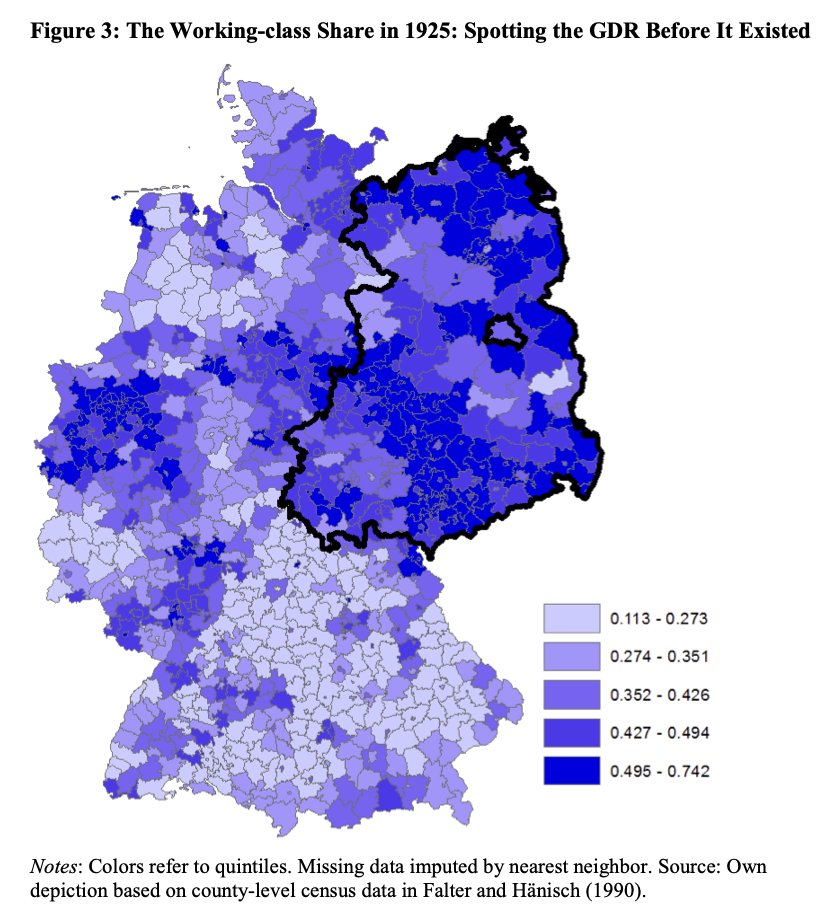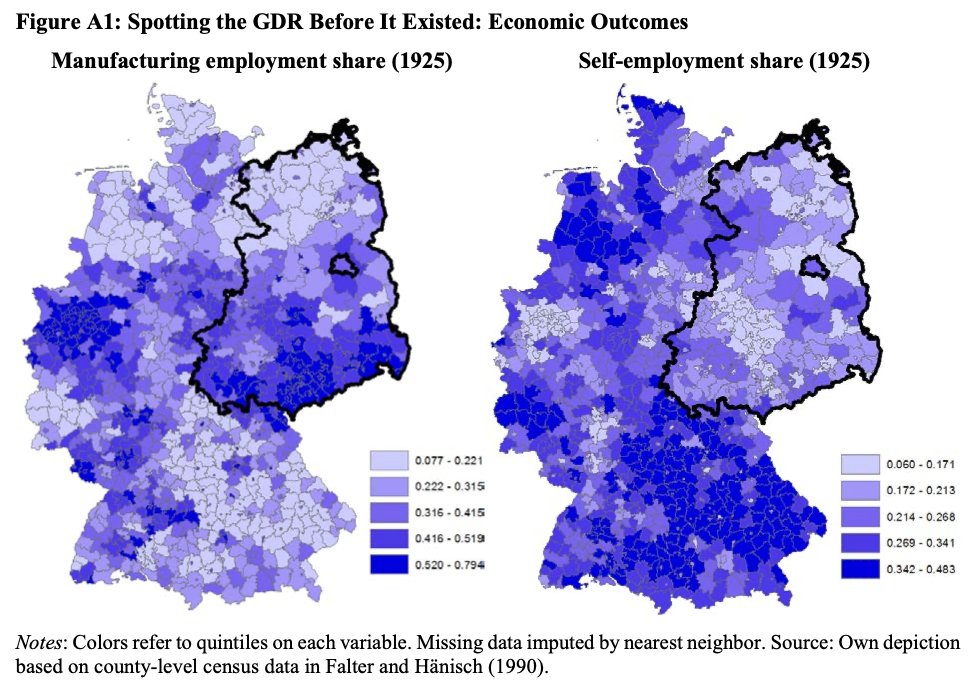
New working paper
Persecution and Escape:
Professional Networks and High-Skilled Emigration from Nazi Germany
with Volker Lindenthal, Sharun Mukand, and Fabian Waldinger
A short summary (1/N)
pdf: …-website-ap-southeast-2.amazonaws.com/RePEc/ajr/sodw…



Persecution and Escape:
Professional Networks and High-Skilled Emigration from Nazi Germany
with Volker Lindenthal, Sharun Mukand, and Fabian Waldinger
A short summary (1/N)
pdf: …-website-ap-southeast-2.amazonaws.com/RePEc/ajr/sodw…




(2/N) Academics of Jewish origin in Weimar Germany were some of the greatest scientific luminaries of the first half of the 20th century.
For example, Nobel Laureates such as Albert Einstein, Erwin Schrödinger, and Max Born shaped modern physics.
For example, Nobel Laureates such as Albert Einstein, Erwin Schrödinger, and Max Born shaped modern physics.

(3/N) The National Socialist Party (NSDAP) seized power on January 30, 1933.
On April 7, 1933, the Nazi government started to dismiss academics of Jewish descent from their positions.
The University of Berlin at the time:
On April 7, 1933, the Nazi government started to dismiss academics of Jewish descent from their positions.
The University of Berlin at the time:

(4/N)
The increasing persecution in Nazi Germany and the threat of deportation to camps meant that academics of Jewish origin scrambled to escape through emigration.
Many went to leading universities around the world.
The increasing persecution in Nazi Germany and the threat of deportation to camps meant that academics of Jewish origin scrambled to escape through emigration.
Many went to leading universities around the world.

(5/N)
Anecdotally, academic networks played an important role in the decision to leave Germany. E.g. Göttingen-based world-class mathematician Richard Courant left Germany in 1934 (an “early émigré”) and helped many of his former colleagues find employment in the UK and the US.
Anecdotally, academic networks played an important role in the decision to leave Germany. E.g. Göttingen-based world-class mathematician Richard Courant left Germany in 1934 (an “early émigré”) and helped many of his former colleagues find employment in the UK and the US.

(6/N)
Going beyond examples, did academic networks generally play a role? Did early émigrés (leaving Germany in 1933/34) act as “bridging nodes” to help former colleagues emigrate?
Tough question: need
a) To measure relevant network.
b) Exogenous variation in bridging nodes.
Going beyond examples, did academic networks generally play a role? Did early émigrés (leaving Germany in 1933/34) act as “bridging nodes” to help former colleagues emigrate?
Tough question: need
a) To measure relevant network.
b) Exogenous variation in bridging nodes.

(7/N)
To address a), we hand-collect detailed biographies for >all< academics of Jewish descent.
For identification: not everyone was dismissed in 1933, giving us individual-level exogenous variation in the push to emigrate within the same department. (More on IV, see paper.)
To address a), we hand-collect detailed biographies for >all< academics of Jewish descent.
For identification: not everyone was dismissed in 1933, giving us individual-level exogenous variation in the push to emigrate within the same department. (More on IV, see paper.)
(8/N)
Result: ties to 10 additional early émigrés increase the probability of own emigration by 5 percentage points by 1939, and by 1945.
Result: ties to 10 additional early émigrés increase the probability of own emigration by 5 percentage points by 1939, and by 1945.

(9/N)
We also study destinations of emigration, focusing on the top 2 destinations (UK/US) vs all other countries. Early émigrés indeed act as bridging nodes by drawing their colleagues to the same set of countries.
We also study destinations of emigration, focusing on the top 2 destinations (UK/US) vs all other countries. Early émigrés indeed act as bridging nodes by drawing their colleagues to the same set of countries.

(10/N)
The data allow us to gain a deeper understanding of the workings of professional networks:
1) We show some of the first systematic evidence of decay in social ties over time (more recent colleagues are more helpful than less recent ones).
The data allow us to gain a deeper understanding of the workings of professional networks:
1) We show some of the first systematic evidence of decay in social ties over time (more recent colleagues are more helpful than less recent ones).
(11/N)
2) The strength of ties also decays across space, even within cities.
3) For academics, professional networks are more important than community networks in their escape.
2) The strength of ties also decays across space, even within cities.
3) For academics, professional networks are more important than community networks in their escape.
(END)
@LMU_Muenchen @warwickecon @cage_warwick @MonashWarwick @MonashBusiness @TheRealSoDaLabs @MonashUni @warwicknewsroom
@LMU_Muenchen @warwickecon @cage_warwick @MonashWarwick @MonashBusiness @TheRealSoDaLabs @MonashUni @warwicknewsroom
• • •
Missing some Tweet in this thread? You can try to
force a refresh








